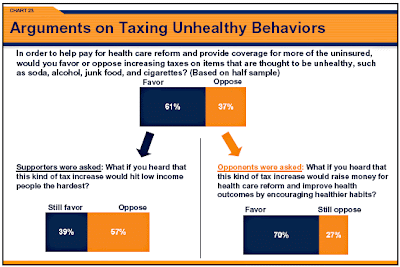| The Colbert Report | Mon - Thurs 11:30pm / 10:30c | |||
| Sunday Morning Fact-Checking - Jake Tapper & Bill Adair | ||||
| ||||
Sunday, April 18, 2010
Two Gladiators
Sunday, February 28, 2010
Friday, January 08, 2010
Tuesday, December 22, 2009
Monday, October 05, 2009
Monday, August 17, 2009
Saturday, June 20, 2009
"The Sickness of American Journalism in a Nutshell"
To be a real establishment journalist (objective), you're not allowed to say when one side is lying -- even when they are. All you're allowed to do is repeat what both sides say and leave it at that (Colbert: "The press secretary announces those decisions, and you people of the press type those decisions down. Make, announce, type. Just put 'em through a spell check and go home"). Froomkin -- unlike David Gregory -- believes that reporters should actually point out when the Government is lying. That's what he did. That's why, to The Post, he wasn't a real reporter but, rather, an "ideologue." That's the sickness of American journalism in a nutshell.
Then there's Froomkin's freakish, exotic belief that journalists should be adversarial to and skpetical of the claims of government officials, especially when it comes to matters of war and national security. See his superb guidelines for press skepticism of government claims ("You Can’t Be Too Skeptical of Authority"); his criticisms of the establishment media for uncritically reporting Bush claims about the Iranian threat; his blistering critique of the failures of the media in the run-up to the Iraq War; and his criticism of Tim Russert's protection of political power. Skepticism towards -- rather than mindless repeating of -- the claims of the political establishment is almost as severe a sin in modern journalism as pointing out when government officials are lying.
And then, most ironically (given John Harris' accusations that he's not objective), is Froomkin's insistence on treating all politicians the same -- subjecting all political leaders to adversarial journalistic scrutiny rather than declaring himself on one side or the other and spouting standard partisan talking points. He couldn't be pigeonholed as reflexively pro-Bush or pro-Obama -- i.e., he has intellectual and journalistic integrity -- and therefore confused the mind-numbing little formula used to simplify and deaden our political debates.
Friday, May 01, 2009
Thin Opinion
This is a fascinating example of just how thin opinion polling like this is. The real lesson here is that most people haven't given this issue even a few seconds thought, and their response to the poll question is practically meaningless. Faced with even the slightest pushback, large majorities of both supporters and opponents flipped their views almost instantly.
Wednesday, April 29, 2009
Send Specialists, Not Generalists
President Obama holds a prime-time press conference tomorrow night to mark his 100th day in office, and if the major news organizations really want to make it interesting, they won’t send their White House corrrespondents.
No, I’m not suggesting a boycott. What I’m proposing is that, depending on what they want to probe, news organizations should send the beat reporters — or even columnists — who have the deepest knowledge and expertise in the subject at hand.
This would not only result in more probing questions, but more thoughtful and challenging follow-ups. What I want to see are tough, detailed exchanges driven by people who really know what they’re talking about and aren’t too intimidated to push back and drill down when necessary.
So if the New York Times or The Washington Post decide that their top priority tomorrow night is to probe Obama about his highly speculative bank bailout proposals, they should send someone who could really mix it up with the president — like Paul Krugman, or Steven Pearlstein.
If they decide the most important thing is to pin Obama down on his views on accountability for torture, they should send Scott Shane, or Joby Warrick.
If the goal is getting Obama to explain his thinking on complicated policy matters, to push him beyond the things he’s said before, to call him out when he’s being vague, or he’s exaggerating, or he’s just dead wrong — then it’s time to call in the experts.
White House correspondents, by contrast, are generalists — and most of them are former political reporters. They tend to focus on how politically effective the president is being rather than whether he is intellectually consistent, whether his positions are realistic, and whether his explanations are sufficient. They are also beholden to the press office for the continued access they need to do their jobs. . . .
Read the rest.




